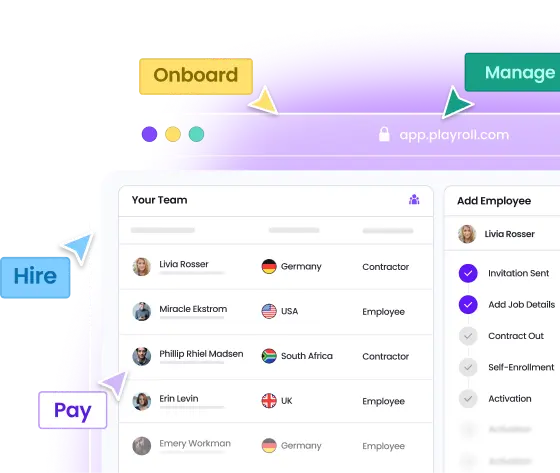What Are the Standard Working Hours In Argentina?
An employee in Argentina has a maximum of 8 hours per day and 48 hours per week. While there aren't specific age-based restrictions mentioned in the available information, all employees are generally subject to these standard limits. The typical working hours in Argentina run Monday through Saturday noon, with the 48 weekly hours distributed flexibly across these six days. Most office jobs follow a standard Monday to Friday schedule, typically from 9:00 AM to 6:00 PM with a lunch break, though this can vary by company and industry.
Maximum Working Hours in Argentina
In Argentina, labor laws establish a legal cap of 8 hours per day and 48 hours per week for most employees. Overtime is allowed but regulated — employees can work up to 3 additional hours per day, but no more than 30 hours per month or 200 hours per year. Overtime must be authorized and properly documented.
Industry Specific Exceptions
Certain industries in Argentina have exceptions to the standard working hours. Healthcare and transportation sectors, for example, operate under unique regulations due to shift-based roles and safety considerations. These exceptions are generally outlined through collective bargaining agreements while still prioritizing employee protections.
Managerial and Exempt Employees
Managerial or exempt employees in Argentina, such as corporate directors or managers with autonomous decision-making power, are not subject to standard overtime regulations. Their duties and actual responsibilities, not just their job title, determine exemption status.
Statutory Full-Time Working Hours in Argentina
The legal definition of full-time work in Argentina is 48 hours per week, typically spread across Monday through Saturday noon. Many modern employers, however, adopt a 40-hour week schedule, especially in professional settings. Collective agreements may set lower full-time thresholds, but never higher than the legal cap.
Overtime Regulations in Argentina
What Counts As Overtime in Argentina?
Overtime includes any work done beyond 8 hours in a single day, more than 48 hours in a week, or during designated rest periods such as after 1 p.m. on Saturdays, all Sundays, and public holidays. Overtime requires prior authorization and must be recorded.
Maximum Overtime In Argentina
Employees can work a maximum of 3 extra hours per day, 30 per month, and 200 per year. Exceeding these limits can lead to fines and legal consequences. Employers must maintain proper documentation to prove compliance during labor inspections.
Overtime Payout Rates In Argentina
Employees earn a 50% premium (150% of regular pay) for overtime worked Monday to Saturday before 1 p.m. For work after 1 p.m. on Saturdays, Sundays, or public holidays, the premium rises to 100% (200% of regular pay). These are statutory minimums and may be improved upon through collective agreements.
Rest Periods and Breaks In Argentina
Employees must receive at least 12 continuous hours of rest between workdays and 35 continuous hours of rest weekly, typically starting at 1 p.m. Saturday through Sunday. Though specific break durations aren't mandated, breaks are expected for shifts over 6 hours. Employers are responsible for ensuring and documenting compliance with rest period regulations.
Night Shifts and Weekend Regulations
Night work is defined as shifts between 9 p.m. and 6 a.m., with a reduced daily limit of 7 hours and a weekly limit of 35 hours. Each hour of night work is considered 8 minutes of overtime and compensated accordingly. Weekend work, especially after 1 p.m. Saturday and on Sundays, requires a 100% pay premium.
Disclaimer
THIS CONTENT IS FOR INFORMATIONAL PURPOSES ONLY AND DOES NOT CONSTITUTE LEGAL OR TAX ADVICE. You should always consult with and rely on your own legal and/or tax advisor(s). Playroll does not provide legal or tax advice. The information is general and not tailored to a specific company or workforce and does not reflect Playroll’s product delivery in any given jurisdiction. Playroll makes no representations or warranties concerning the accuracy, completeness, or timeliness of this information and shall have no liability arising out of or in connection with it, including any loss caused by use of, or reliance on, the information.
.svg)
.svg)
.svg)





.svg)



.png)












.webp)









.svg)